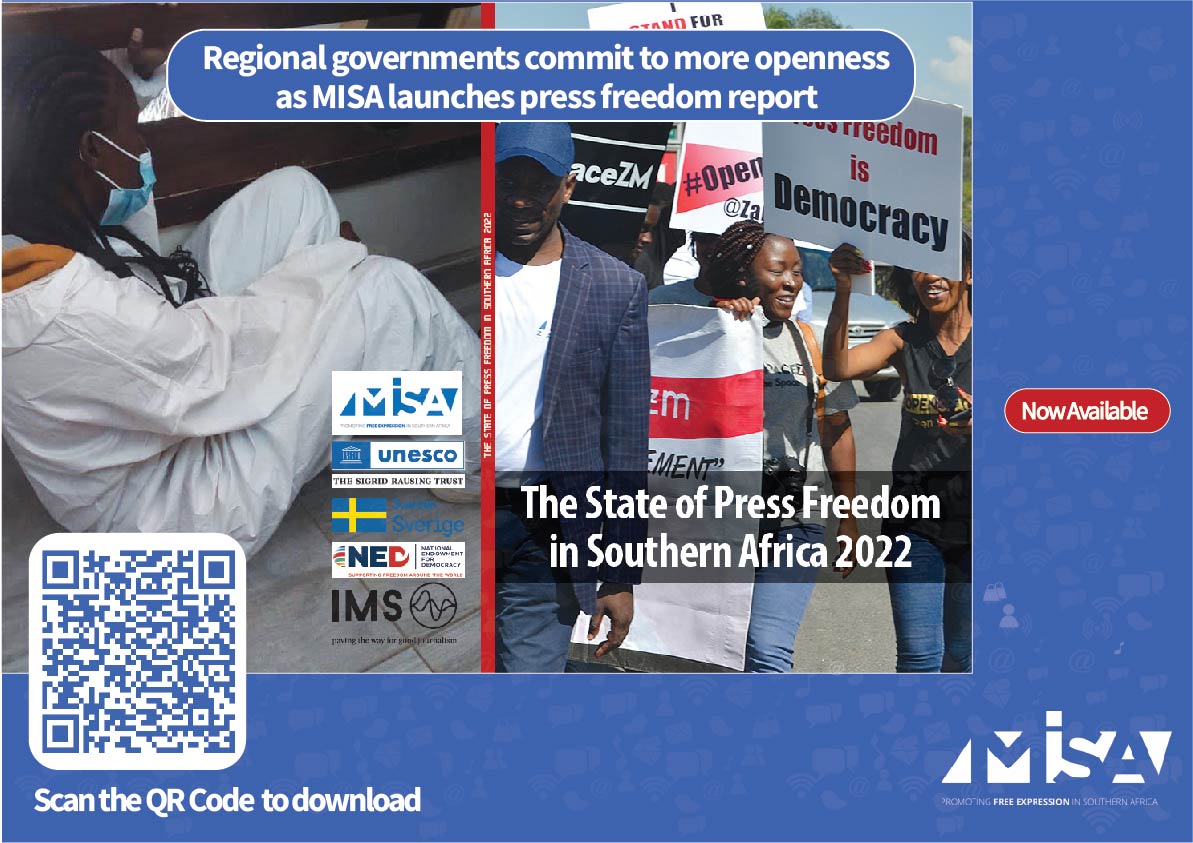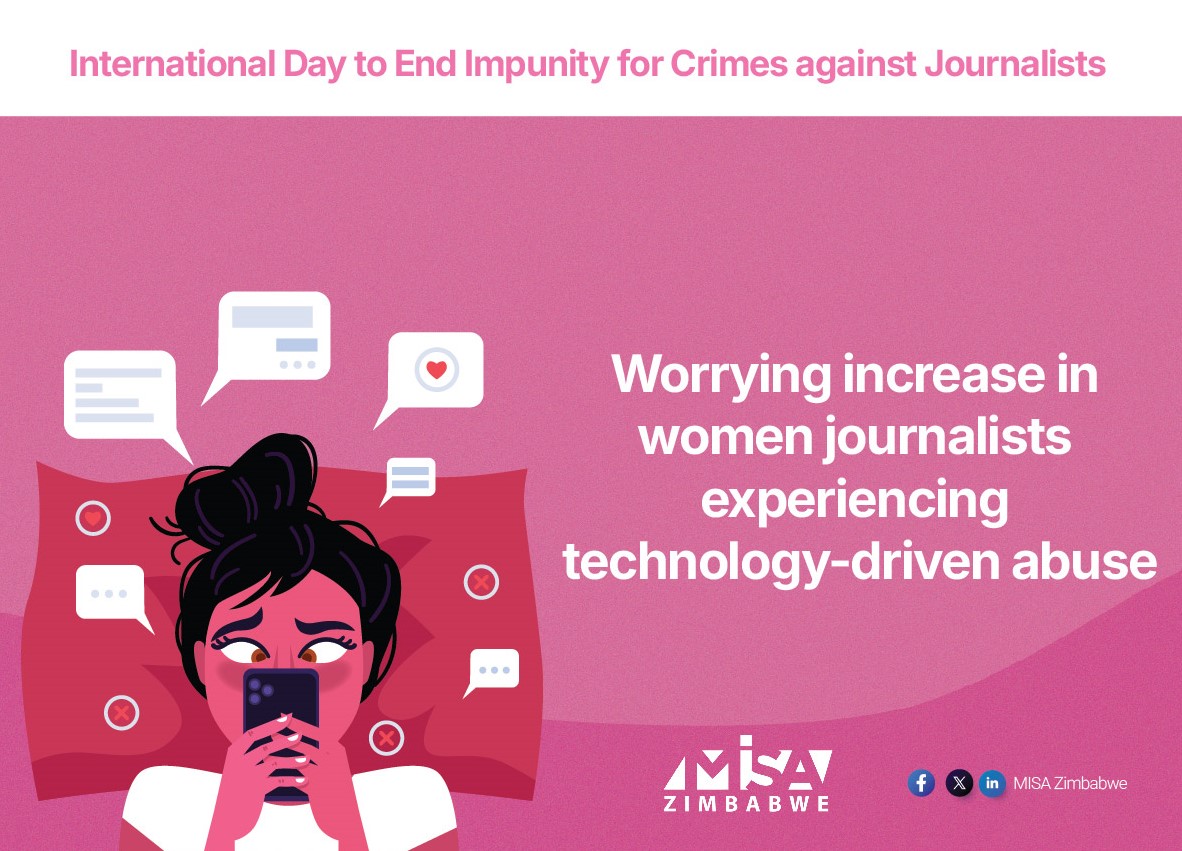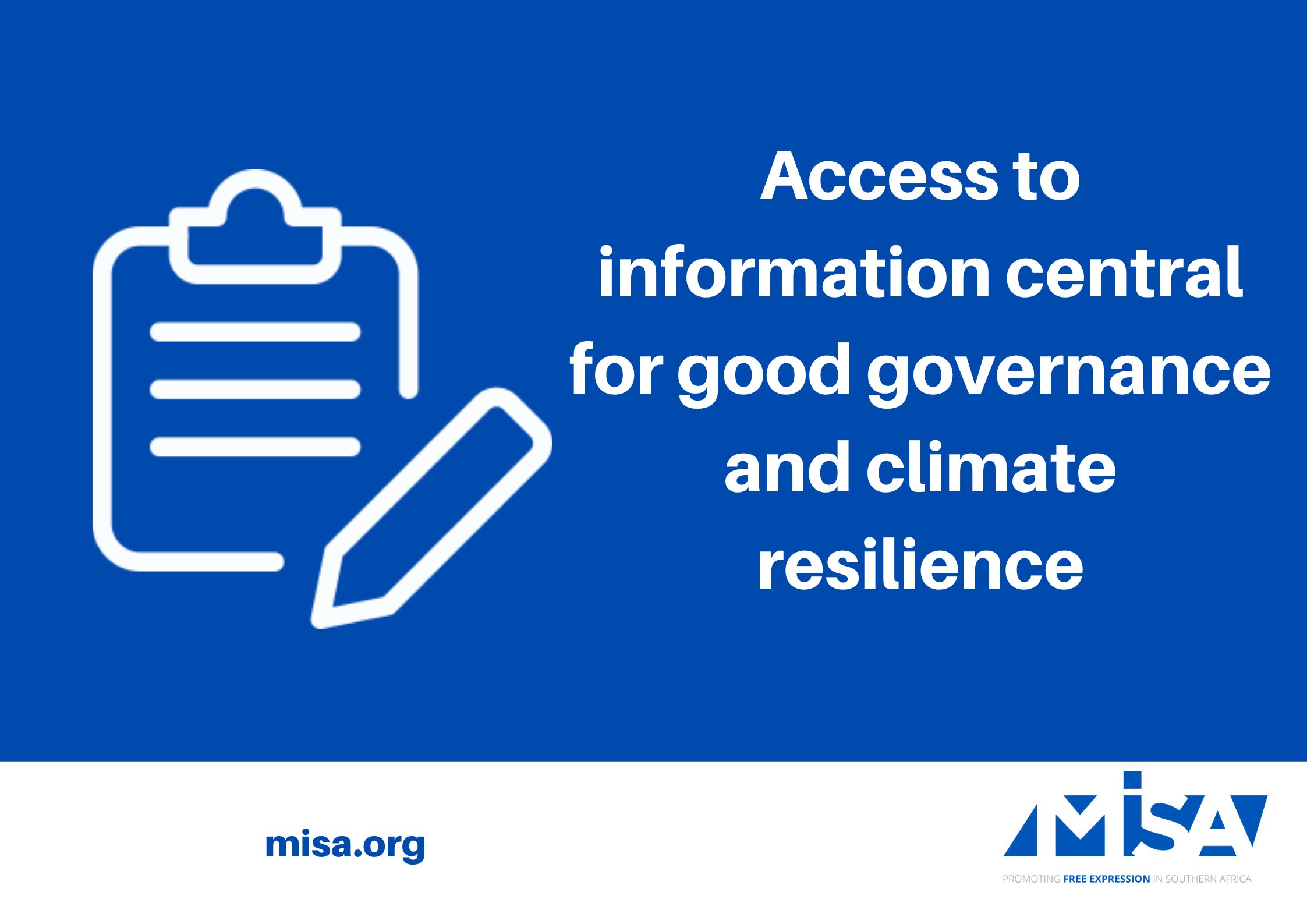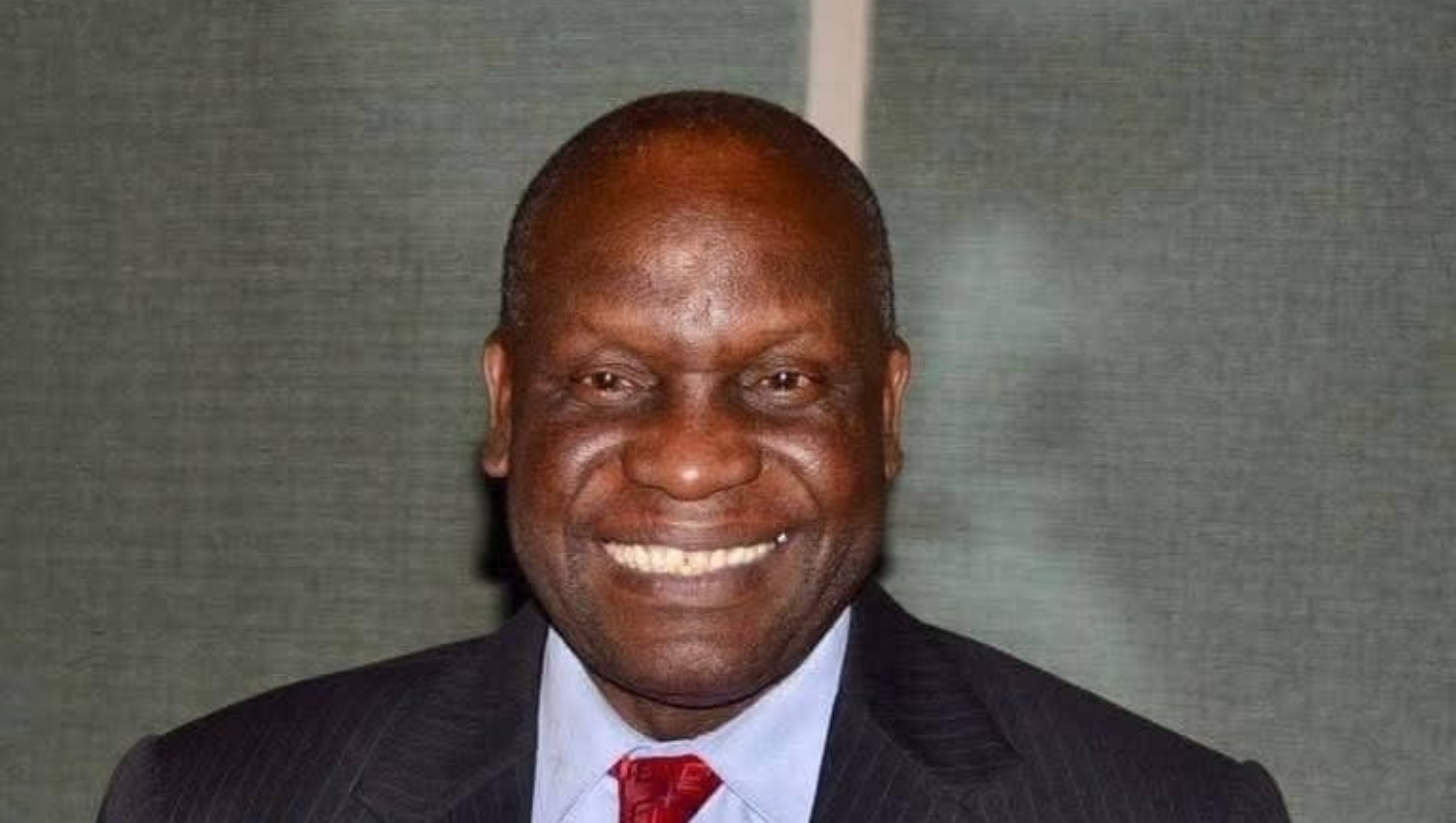MISA Regional launched the third State of Press Freedom in Southern Africa Report on 11 May 2023 in Lusaka, Zambia, where government officials from four regional countries agreed to closely co-operate with civil society organisations in improving freedom of expression and the safety of journalists.
The report was launched in the Zambian capital at the second Africa Media Convention.
UNESCO Regional Office for Southern Africa (ROSA) Regional Director, Professor Lidia Arthur Brito, said there is need for commitment from governments to work with stakeholders in collecting data on media violations using Sustainable Development Goal (SDG) 16.10 metadata.
“There is a gap between civil society data and the data used by state parties,” she said. “There is need for engagement and collaboration. This is a good report, as it uses data, and it is a good platform for engagement.”
MISA Regional Director Tabani Moyo gave a synopsis of the report, explaining that while there were improvements on some aspects, the issue of impunity for crimes against journalists remained a worry.
“Governments in the region should seriously consider the domestication of the UN (United Nations) Plan of Action on the Safety of Journalists into their respective legislations,” he said.
“The State of Press Freedom in Southern Africa report, anchored on the SDG 16.10.2, should form part of member states’ gauges on the media and expression policy propositions.”
Moyo added that current and future legislation by Southern African states must conform with the continental soft law such as the Revised Declaration of Principles on Freedom of Expression and Access to Information in Africa.
In response, Dr Audrin Mathe, the executive director in the Namibian Ministry of Information and Communication Technology, said he endorsed the report, but there was need to share the State of Press Freedom in Southern Africa Report with the SADC Executive Secretariat.
“This will ensure that ministers have access to the report and, then maybe, it could even be an agenda item at a SADC summit,” he said.
Morden Mayembe, the Director, Press and Media Development Department in Zambia’s Ministry of Information and Media, conceded that the enactment of the access to information law in Zambia had taken longer than expected, but said the process had gained new momentum.
He said the government is open to working with civil society and the media in the legal reform process.
The Director of Information in Malawi’s Ministry of Information, Chikumbutso Mtumodzi, said the State of Press Freedom in Southern Africa report was a very important document, which should trigger high level engagement.
“If this (launch of the report) was held in Malawi, I can guarantee you that the president would have attended,” he said.
Zambia’s President Hakainde Hichilema is expected to attend the third day of the Africa Media Convention on Saturday, 13 May 2023.
The Chief Director in Zimbabwe’s Ministry of Information, Publicity and Broadcasting Services, Jonathan Gandari, took exception to some of the report’s findings.
He, however, said he was committed to working with MISA in the future to compare data generated by the Zimbabwean government and MISA’s own information.
MISA first launched the State of Press Freedom in Southern Africa Report – the only report in Africa so far that uses SDG 16.10 to report on the safety of journalists – in 2021.
MISA Regional Communique













